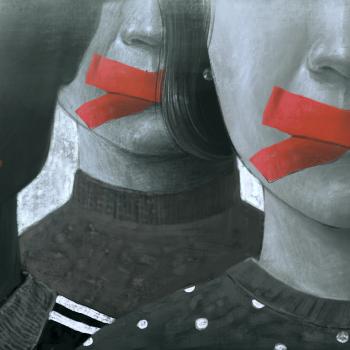 When the late Roman Republic was considering whether to go to war against their sworn enemy of Carthage for a third (and, it turned out, final) time, one Roman leader, Nasica Corculum, argued fruitlessly against the attack. He feared that the loss of a common enemy would lead the Roman people to lose their virtue and discipline, sink into decadence, and even turn against each other in vice, greed, and competitiveness. And indeed, not long after the total Roman victory over Carthage in 146 BCE, a series of civil conflicts and uprisings erupted, lasting until Julius Caesar replaced the Republic with an empire for good. Of course, historians argue about whether the eradication of Carthage really helped cause the Roman Republic’s decline, but the narrative point remains: in the ebb and flow of history, the seeds of an empire’s destruction often appear at the moment of greatest triumph.
When the late Roman Republic was considering whether to go to war against their sworn enemy of Carthage for a third (and, it turned out, final) time, one Roman leader, Nasica Corculum, argued fruitlessly against the attack. He feared that the loss of a common enemy would lead the Roman people to lose their virtue and discipline, sink into decadence, and even turn against each other in vice, greed, and competitiveness. And indeed, not long after the total Roman victory over Carthage in 146 BCE, a series of civil conflicts and uprisings erupted, lasting until Julius Caesar replaced the Republic with an empire for good. Of course, historians argue about whether the eradication of Carthage really helped cause the Roman Republic’s decline, but the narrative point remains: in the ebb and flow of history, the seeds of an empire’s destruction often appear at the moment of greatest triumph.
Now for the inevitable comparison with the United States and liberal democracy. In 1992, the political scientist Francis Fukuyama famously published a book with the juicy title of The End of History and the Last Man, in which he argued that liberal democracy was the final form of human governance. Fukuyama’s thesis was that, now that the Communist bloc had decisively lost the Cold War, world politics would henceforth inevitably move toward an ever more complete victory for liberal democracy. For one thing, no other type of government was as desirable. For another, continued economic industrialization required an informed, participatory, democratic populace. Even more compellingly, mature democracies didn’t go to war against each other. Over time, liberal democracy would simply expand further and further, until we arrived at the end of ideological conflict: the end of history.
The End of the End of History
For a decade or so after Fukuyama’s book appeared, America’s predominance as the world’s foremost power seemed unchallenged, and its style of liberal democracy was indeed spreading. Country after country gave up their authoritarian ways and turned to the ballot box. At the same time, globalization was the the rallying cry of the cognitive elite: in high school classes and college seminars, in newspaper columns and shareholders’ reports, the ever-greater economic integration of the world went unquestioned. Liberal democracy was sweeping away all rivals and laying the groundwork for a truly global society defined by human rights, democratic good governance, benevolent technocratic expertise, and the untrammeled exchange of goods, capital, people, and ideas.
And then the 21st century showed up.
The meteoric rise of China showed the world that it was, in fact, completely possible to rapidly industrialize without making even the tiniest concessions to democracy or liberalization. In the wake of the 2008 financial crisis, many nations have suffered from democratic backsliding, or the loss of democratic norms. Most ominously, the United States – the lodestar of modern liberal democracy and, up til now, the linchpin of the postwar global order – slipped to “flawed democracy” status in the global Democracy Index in 2017, and hasn’t moved back up the ratings since. At the same time, extreme partisan polarization has degraded American political culture, and growing numbers of young people across the industrialized world no longer view democracy positively.
The medieval Islamic philosopher Ibn Kaldun argued that societies crumble when their elite classes become complacent, having vanquished their enemies and grown accustomed to wealth and comfort. Without the need for discipline and unified purpose that come from rallying against a shared enemy, the privileged turn to pursuing their own pleasure and competing with one another for status. From a Kaldunian perspective, Nasica was right: the destruction of Carthage deprived Romans of their shared enemy, and so their sense of common purpose. The loss of the Soviet Union might have had a similar effect on the United States, leaving the country feeling overconfident, complacent, and disinclined to make the continued sacrifices that a functioning democracy requires.
It’s impossible to know whether Nasica Corculum was right about the dangers to Rome of losing a common enemy to keep people bonded together, or whether his apocryphal warnings really apply to our present day. But it’s hard not to see echoes of the late Roman Republic’s predicament: just as the days begin to shorten again as soon as summer reaches its height, liberal democracy’s apparent wholesale triumph lasted only a few sweet moments before its shadow started to lengthen. Serious rivals – in particular, China’s brand of “illiberal capitalism” and authoritarian governance – quickly gained momentum and clout at the same time that infighting, loss of common vision, and withering morale began to plague the most advanced democratic countries.
American Hegemony and the Liberal Order
These developments raise a sticky question: what happens to the world if liberal democracy loses its position as the default norm? Liberal democracy has always seen itself as universal, after all – not the parochial worldview of some pastoral backwater, but the End of All Ideologies, the spirit of reason itself come to enlighten and liberate all people. But as I discussed here recently, our democratic ideals don’t actually come from some pristine, timeless Platonic realm of universal reason. They’re the unique and contingent product of a particular place and a particular history. Liberal democracy is, in many ways, an outgrowth of the Reformation.
It’s not coincidence, then, that the United States has been both the global epicenter of Protestantism for more than a century and a half and the bellwether for all things liberal and democratic. So what if the apparent (if temporary?) global triumph of liberal democracy wasn’t a grand historic inevitability after all, but the political outworkings of the United States’ own, particularistic agenda? A 2006 paper by political scientist Mark Sheetz of Columbia University argues that, in fact, globalization has just been American imperialism all along:
the United States is a hegemonic power insofar as it has been able to impose its set of rules on the international system…If globalization refers to the impact of foreign forces across national borders, be they economic, societal, cultural, or information-related, then globalization, in one sense, amounts to little more than an expression of US hegemony.
Today, the word “hegemony” often means, roughly, “oppressive and unjust,” thanks to the influence of early 20th-century Marxist thinker Antonio Gramsci. But Sheetz doesn’t mean it that way. He simply means that the United States is extraordinarily powerful, with the ability to enact its agenda in the world. Sometimes this agenda is beneficial, as in the U.S.’s commitment to the military protection of European and Asian allies. Say what you like about having a global policeman, but it’s entirely possible that Steven Pinker’s celebrated 20th-century decline in warfare is really the straightforward result of America being so overwhelmingly dominant that no one else wants to rattle the cage. The same goes for the supposedly ironclad law that mature democracies don’t wage war against one another. Since “mature democracy” is just another way of saying “America’s ally,” of course these mature democracies don’t fight one another – but not necessarily because democracy inherently emits magic anti-war rays. It’s because they constitute a de facto bloc.
At the same time, the U.S. has been uniquely, even overwhelmingly, dominant in the realms of culture, economics, and science:
The United States economy produces over 30 percent of total world product.* Some 70 percent of all Nobel laureates in the sciences, economics, and medicine conduct their research in America.…The world’s leading firms in the fields of information technology, biotechnology, and nanotechnology are American. American universities are the envy of the Earth, and American language, films, and culture permeate the globe.
The hegemonic dominance of America across multiple domains has allowed the U.S. to spread its ideological vision – a culturally Protestant-ish, capitalist, and liberal-democratic one – across the Earth, even shaping how the world saw the future. I mean, ever watch Star Trek? Here’s a vision of the future that nearly precisely matched the universalistic conceits of American democracy: a cosmic federation, based on the ideals of freedom, science, truth, and equality, that overcomes the irrational biases of the past and achieves technological mastery of the physical world. Just as the United States hosts the headquarters of, and is by far the largest funder of and biggest player in, the United Nations, the fictional United Federation of Planets is centered on – and ultimately dominated by – Earth. The UN flag was even the inspiration for the United Federation of Planets logo.
So our very imaginations have been shaped to see the future as looking like the continual expansion of liberal-democratic norms and ideals, complemented by ever-growing technological mastery of nature. That’s what “the future” meant. But that vision was never really inevitable or universal. Instead, it stemmed in large part from the Protestant (and Enlightenment) ideals that have historically infused American society, including an emphasis on individual liberties and rights, skepticism of traditional or inherited authority, and an abiding belief in technological and economic progress.
A Crisis of Belief
It’s easy to be cynical about power. The boons of liberal democracy, including greater freedom and equality for women, large-scale reduction of poverty, and widespread political self-governance, have always been entwined with a darker side. The United States has a checkered history, after all: racism and slavery, conquest, broken treaties with American Indian tribes, economic oppression, the invention of daytime television. These moral failings (okay, except the last one) have become topics of intense focus in elite academic circles – to such an extent, in fact, that cynicism is often the default mode under which thought leaders (especially in academia) discuss and think about America. Seen through this darkened lens, America’s leading role in the spread of liberal democracy is simply a brute power grab, an attempt to dominate and oppress the rest of the world.
Yet it wouldn’t have been possible for Western leaders to disseminate democratic ideals so effectively if many of them hadn’t really believed, in a genuine and non-cynical way, in what they were evangelizing. In the same way, Protestant missionaries wouldn’t have been as successful in spreading global Christianity if they didn’t really believe in the gospel they preached. This odd mix of facts leads us to a truly existential question: what happens when the leading members of the world’s leading societies no longer believe in their societies’ core narratives? If it’s the case that modern democracy is, in many ways, an historical outgrowth of Protestantism, does the rapid decline of Protestantism in its former geographic heartland – Europe and North America – have implications for the future of democracy itself?
In the social sciences, there are two schools of thought about this question. One, exemplified by cultural evolutionists such as Ara Norenzayan, proposes that religion is simply a “ladder” that, once societies use it to attain a stable level of good governance, can be kicked away. This view sees the progression from Christianity to secular democracy as path-dependent, but mostly unidirectional. Cultural values and habits, once instilled, can continue to operate and provide a stable basis for continued evolution, even if the institutions that instilled them have vanished.
The second school of thought, exemplified by anthropologist Scott Atran, argues instead that the disappearance of religious practices, habits, and institutions leads to the eventual withering away of the values that they instilled. Without Protestant churches to impart individualistic, self-disciplined, relatively egalitarian values, people will invariably begin to pick up other values and drift toward other institutions – probably ones that aren’t as conducive to democracy.
The truth, as usual, is probably somewhere in between. Cultural traditions and values can have a lot of inertia, even in the absence of formal institutions to perpetuate them. Catholic taboos against cousin marriage remained strong in western Europe even after the Reformation, when Protestant churches took over that lacked official restrictions on it. But without a common set of references or a shared narrative, even a very powerful society like the U.S. can quickly lose its ability to solve problems, much less disseminate its vision of the good life. The norms and values we once took for granted really can evaporate.
What we’re living through right now is a crisis not just of democracy, but of the kind of culture that underlies democracy. I’m not just talking about the coronavirus pandemic – I mean the political and existential upwellings that were already shaking the world before December of 2019. Democratic norms and values came from a particular place and emerged out of a unique procession of historical events in Europe and North America. These norms and values underpin science, facilitate technological progress, gave rise to secular liberal culture. They were the warp and weft of globalization. Without them, it’s not clear what our trajectory looks like. It doesn’t take 2300-year-old Roman reactionaries to tell us that the future can be very uncertain indeed.
______
* Now, in 2020, that number has declined to about 24 percent. By comparison, China’s economy accounts for about 19.5 percent of the world economy, but China has 18.2 percent of the world’s population, compared to 4.3 percent for the US.
______
I’m writing about these large-scale political and cultural topics partly to help get my own thoughts in order about what’s going on in the world, and partly because they have a tremendously significant bearing on the future of science. There’s a real question as to whether science as we know it would be able to thrive in a post-democratic world (say, a world dominated by illiberal state capitalism and authoritarian governments). Scientists tend to think about themselves as detached from the contingencies of politics, but the uncomfortable fact is that the intellectual openness, liberal government funding, and institutional infrastructure that make scientists’ jobs possible are hard to separate from open, democratic societies. Similarly, the international collaborations that so many scientific projects depend on could be imperiled in a multipolar world in which great power politics (and potentially wars) came rushing back. Thinking at a meta-scientific level about how society and science are interconnected (a project with an estimable pedigree) seems like a worthwhile thing to do at a time of change and uncertainty like our own.












